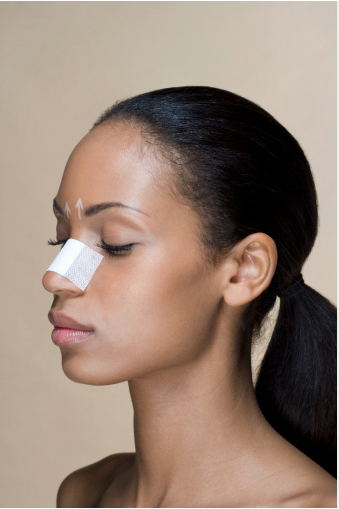 Many people speculate about the mental health of celebrities that undergo multiple plastic surgeries, but a new report suggests there might be something to the malicious tabloid gossip.
Many people speculate about the mental health of celebrities that undergo multiple plastic surgeries, but a new report suggests there might be something to the malicious tabloid gossip.
In a story published on WebMD, a new study claims a third of patients seeking cosmetic surgery to improve their nose have at least moderate symptoms of a mental disorder that makes them preoccupied with imagined or slight defects in appearance.
The mental disorder is called body dysmorphic disorder (BDD).
This provocative study, which appears in Plastic and Reconstructive Surgery, should unquestionably raise awareness and compassion for celebrities like the late Michael Jackson, who — even though he was never diagnosed with this disorder — find themselves the victim of vicious attacks regarding their mental state from the media and fans without any knowledge of this dis-ease or any other for that matter. Yeah right, who are we fooling? the tabloids are going to have a field day with this report.
WebMD quoted Peter W. Hellings, MD, PhD, associate professor of otorhinolaryngology at University Hospitals Leuven in Belgium, who claims that this disorder is under-diagnosed:
“It’s higher than we thought,” Hellings tells WebMD. “We found 40% had some BDD symptoms, but 33% had at least moderate symptoms of BDD. They have symptoms, but not the full diagnosis,” he says. “I would say half of them have the full disorder.”
Dr. 90210, Nip Tuck, and other T.V. programs revolving around plastic surgery do not always have the time to dedicate to the post-surgery issues that arise, according to this report, more frequently than anyone thinks — especially the American Society of Plastic Surgeons, who estimate that only up to 3% of the population is thought to have BDD.
Dr. Hellings, who performed this experiment on his own patients, proceeded in the following manner:
Hellings evaluated 226 patients who sought nose-reshaping surgery; 147 had the surgery for aesthetic reasons and 79 for functional problems…
Hellings gave everyone standard questionnaires to screen for BDD. Independent observers also evaluated the patients’ noses.
Only 12% of those who requested the surgery primarily for functional purposes had moderate symptoms of BDD, while there were 43% with moderate symptoms in the group who chose the surgery for aesthetic reasons.
In the comparison group, which included all cosmetic surgery patients, only 2% had moderate symptoms
While doctors are just now becoming increasingly aware of BDD, Hellings, in particular, says he will still perform the surgeries. Not all of cosmetic surgery patients have BDD, but one psychotherapist feels that Hellings’ findings are conservative — explaining that BDD is more widespread but very under-reported because of the stigmatization that follows a patient after a mental illness diagnosis.
The pressure to conform to any standard of beauty is intense in America. Now, we can almost guarantee that some doctors will be on the next E! True Hollywood Story giving an assessment of the latest celebrity who has destroyed his face because of his struggles with BDD.






